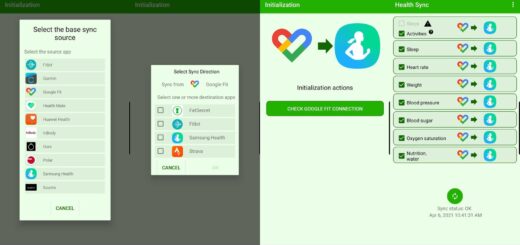Effective weight loss programs
If you’re on a mission to shed some pounds and get in shape, then you’ve come to the right place. In this article, we’ll provide you with a comprehensive overview of effective weight loss programs and everything you need to know to embark on your fitness journey. From fitness equipment and nutrition tips to different exercise types and specialized diets, we’ve got you covered. We’ll also explore wellness practices, health tracking, and even the latest fitness apparel trends. So sit back, relax, and get ready to discover the key strategies to achieve your weight loss goals.
Effective weight loss programs
Losing weight can be a challenging journey, but with the right weight loss program, you can achieve your goals effectively and sustainably. It’s essential to choose a program that suits your needs and preferences, as well as considers factors like your current health status, lifestyle, and any underlying medical conditions. In this article, we will explore the importance of choosing an effective weight loss program, factors to consider when selecting one, different types of weight loss programs, the role of exercise and nutrition in these programs, tips for tracking progress and sticking to your program, common pitfalls to avoid, tips for evaluating the success of a program, and strategies for weight loss maintenance.

The importance of choosing an effective weight loss program
Choosing an effective weight loss program is crucial for your overall health and well-being. A well-designed program can help you not only shed unwanted pounds but also improve your fitness level, boost your energy, and reduce the risk of chronic diseases such as heart disease, diabetes, and certain cancers. It’s essential to select a program that focuses on long-term lifestyle changes rather than quick fixes, as sustainable weight loss is more likely to result in lasting results.
Factors to consider when selecting a weight loss program
When selecting a weight loss program, it’s essential to consider various factors to ensure it aligns with your goals and lifestyle. Some key factors to consider include:
-
Health status and medical history: Determine if you have any underlying medical conditions or special dietary needs that could impact your weight loss journey. Consulting with a healthcare professional or registered dietitian can help you choose a program that takes these factors into account.
-
Personal preferences: Consider your food preferences, dietary restrictions, and exercise preferences when choosing a weight loss program. It’s important to select a program that you enjoy and can stick to in the long run.
-
Lifestyle: Assess your current lifestyle and commitments to determine if the program you choose is realistic and feasible for you. If you have a busy schedule, look for programs that offer flexibility and can be easily integrated into your routine.
-
Support system: Consider if you would benefit from a structured program that provides guidance and support, or if you prefer a more independent approach. Some people find accountability in group settings, while others prefer individualized plans.
-
Cost: Evaluate the cost associated with the program, including membership fees, meal replacements, or specialty foods. Make sure it fits within your budget and that you’re getting good value for your investment.
Types of weight loss programs
There are various types of weight loss programs available, each with its own approach and focus. Some common types include:
-
Commercial weight loss programs: These programs, such as Weight Watchers and Jenny Craig, provide structured meal plans, support groups, and regular check-ins to help individuals achieve their weight loss goals. They often use a point system or pre-packaged meals to simplify meal planning and portion control.
-
Meal replacement programs: These programs involve replacing one or more meals per day with nutritionally balanced shakes, bars, or pre-packaged meals. They provide convenience and portion control, making it easier to track calorie intake.
-
Low-carbohydrate or ketogenic (keto) programs: These programs focus on reducing carbohydrate intake and increasing healthy fats and protein consumption to induce a state of ketosis, where the body burns fat for fuel. They can be effective for weight loss and have been shown to improve markers of metabolic health.
-
Behavioral weight loss programs: These programs focus on modifying eating and exercise behaviors by providing education, support, and tools to help individuals make healthier choices. They often emphasize the importance of goal setting, self-monitoring, and creating sustainable habits.
-
Online weight loss programs: These programs are typically web-based or app-based and provide interactive tools, meal planners, exercise trackers, and community support. They offer flexibility and convenience, allowing individuals to access resources and support from anywhere at any time.
Role of exercise in weight loss programs
Exercise plays a vital role in weight loss programs by increasing energy expenditure, promoting fat loss, preserving lean muscle mass, and improving overall fitness. When selecting a weight loss program, it’s important to choose one that incorporates exercise in a way that suits your fitness level, preferences, and available resources. Some key points to consider regarding the role of exercise in weight loss programs include:
-
Cardiovascular exercises for fat-burning: Activities like brisk walking, jogging, cycling, swimming, and dancing can elevate your heart rate, burn calories, and contribute to fat loss. Aim for at least 150 minutes of moderate-intensity cardiovascular exercise per week, or 75 minutes of vigorous exercise.
-
Strength training exercises for fat-burning: Including resistance training in your weight loss program can help build lean muscle mass, increase metabolism, and enhance fat-burning potential. Incorporate exercises that target major muscle groups, such as squats, lunges, push-ups, and deadlifts, two to three times per week.
-
HIIT workouts for fat-burning: High-Intensity Interval Training (HIIT) involves short bursts of intense exercise alternated with brief recovery periods. HIIT workouts are time-efficient and can help maximize calorie burn both during and after exercise. Incorporate HIIT sessions, such as sprints, burpees, or jumping jacks, one to two times per week.
-
Incorporating fat-burning exercises into a weight loss program: Choose activities that you enjoy and can sustain in the long term. Consider incorporating a mix of cardiovascular exercises, strength training, and HIIT workouts to reap the benefits of different exercise modalities.

Role of nutrition in weight loss programs
While exercise is important for weight loss, nutrition plays a critical role as well. A well-balanced, calorie-controlled diet not only supports weight loss but also provides essential nutrients for overall health. When selecting a weight loss program, consider its approach to nutrition, including meal plans, dietary restrictions, and guidance on portion control. Here are some key points to consider regarding the role of nutrition in weight loss programs:
-
Calorie deficit: To lose weight, you need to create a calorie deficit by consuming fewer calories than you expend. A weight loss program should help you determine your calorie needs and provide guidance on appropriate portion sizes and food choices to achieve this deficit.
-
Balanced macronutrients: A healthy weight loss program should emphasize a balanced intake of carbohydrates, protein, and fats. Each macronutrient plays a unique role in the body and has an impact on hunger, satiety, and overall health. Aim to include a variety of nutrient-dense foods from all food groups.
-
Meal planning and preparation: Many weight loss programs provide meal plans or meal-prep ideas to help you make healthier choices and stay on track. Meal planning can save time, reduce reliance on unhealthy convenience foods, and make it easier to stick to your dietary goals.
-
Nutritional education: Look for programs that provide education on nutrition, portion control, and healthy eating habits. Understanding the impact of different foods on your body can empower you to make informed choices and maintain long-term weight management.
Tracking progress in weight loss programs
Tracking your progress is an important component of a successful weight loss program. It allows you to monitor your achievements, identify areas for improvement, and stay motivated during your journey. Here are some tips for effectively tracking your progress:
-
Keep a food diary: Recording your daily food intake can increase awareness of your eating habits and help you identify patterns. Include details such as portion sizes, cooking methods, and how foods are prepared to get a comprehensive view of your nutrition.
-
Use a weight loss app or online tracking tool: There are numerous apps and online tools available that allow you to log your food intake, exercise, and body measurements. These tools often provide insights, graphs, and reminders to help you stay on track.
-
Monitor body measurements: In addition to tracking your weight, consider measuring other body metrics such as waist circumference, hip circumference, and body fat percentage. These measurements can give you a more comprehensive picture of your progress, as weight alone may not reflect changes in body composition.
-
Take progress photos: Taking monthly progress photos can be a powerful visual tool to track changes in your body shape and overall appearance. Seeing tangible results can boost motivation and serve as a reminder of how far you’ve come.
-
Assess non-scale victories: Remember to celebrate non-scale victories, such as increased energy levels, improved sleep quality, increased strength, or fitting into smaller clothes. These victories can be just as meaningful as changes in weight and serve as additional motivation to keep going.
Tips for sticking to a weight loss program
Sticking to a weight loss program can be challenging, but with the right strategies and mindset, it becomes much easier. Here are some tips to help you stay committed and motivated:
-
Set realistic goals: Establish realistic and attainable weight loss goals based on your individual circumstances. Focus on gradual progress rather than striving for quick fixes or drastic changes.
-
Find a support system: Surround yourself with a supportive network of friends, family, or fellow weight loss program participants who can provide encouragement, accountability, and understanding. Consider joining online communities or support groups to connect with like-minded individuals.
-
Make it enjoyable: Choose activities that you enjoy and look forward to. If you dread certain types of exercise or find certain foods unappealing, explore alternative options that align with your preferences. Weight loss is a journey, so make it a pleasant one.
-
Practice self-compassion: Be kind to yourself throughout the weight loss process. It’s normal to have setbacks or temporary lapses in motivation. Instead of dwelling on past mistakes, focus on the present moment and make choices that align with your goals moving forward.
-
Celebrate milestones: Take the time to acknowledge and celebrate your achievements along the way. Reward yourself with non-food-related treats like a spa day, a new book, or a favorite hobby. Celebrating milestones boosts motivation and reinforces positive behaviors.
Common pitfalls to avoid in weight loss programs
Weight loss programs come with their fair share of challenges and potential pitfalls. Being aware of common pitfalls can help you navigate your weight loss journey more effectively. Here are some common pitfalls to avoid:
-
Extreme or unsustainable diets: Avoid programs that promote extremely low-calorie diets, highly restrictive eating patterns, or quick-fix solutions. These approaches are generally not sustainable in the long term and can result in nutrient deficiencies or an unhealthy relationship with food.
-
Relying solely on the scale: Weight fluctuates naturally due to factors such as water retention, hormone fluctuations, or changes in muscle mass. Do not solely rely on the scale as a measure of progress. Assess your overall well-being, energy levels, and body composition changes for a more comprehensive view of your progress.
-
Neglecting the importance of sleep: Inadequate sleep can disrupt your metabolism, increase cravings, and hinder weight loss efforts. Prioritize quality sleep as part of your weight loss program.
-
Comparison and self-criticism: Avoid comparing yourself to others or aiming for an idealized body that may not be realistic or healthy for you. Every individual is unique, and progress looks different for each person. Focus on your own journey and celebrate your personal achievements.
-
Neglecting mental and emotional well-being: Weight loss is not just about the physical aspect; it’s essential to prioritize your mental and emotional well-being as well. Manage stress, practice self-care, and seek professional help if needed.
Evaluating the success of a weight loss program
Evaluating the success of a weight loss program is an important step to determine if it’s working for you and if any adjustments need to be made. Here are some factors to consider when evaluating the success of a program:
-
Weight loss progress: Assess whether you’re achieving your weight loss goals within a healthy and sustainable range. Aim for a weight loss of 1-2 pounds per week as a realistic and attainable target.
-
Energy levels and overall well-being: Pay attention to changes in your energy levels, mood, and overall sense of well-being. A successful weight loss program should leave you feeling energized and satisfied rather than fatigued or deprived.
-
Blood markers and health measurements: Evaluate any changes in key health markers, such as blood pressure, blood sugar levels, cholesterol levels, or waist circumference. Positive changes in these markers can indicate improved health and progress toward your goals.
-
Sustainability: Consider whether the program is sustainable for the long term. A successful weight loss program should promote habits and behaviors that can be maintained even after reaching your goal weight.
-
Enjoyment and adherence: Assess whether you enjoy the program and can adhere to its principles without feeling excessively deprived or restricted. If you find it challenging to stick to the program or dread certain aspects of it, it may be time to reassess and make adjustments.
Weight loss maintenance strategies
Once you’ve achieved your desired weight loss, the journey doesn’t end there. Maintaining your weight loss requires ongoing effort and a focus on sustainable lifestyle changes. Here are some strategies to help maintain your weight loss:
-
Continue healthy eating habits: Avoid reverting to old eating habits and instead focus on maintaining a balanced and nutritious diet. Adopting a mindful and intuitive approach to eating can help you manage your weight and make conscious choices about your food intake.
-
Stay active: Incorporate regular physical activity into your routine to maintain your weight loss and overall health. Aim for at least 150 minutes of moderate-intensity aerobic activity or 75 minutes of vigorous activity per week. Additionally, engage in strength training activities to preserve and build lean muscle mass.
-
Monitor and manage stress: Stress can contribute to weight gain and hinder weight loss maintenance efforts. Develop healthy stress management techniques such as meditation, deep breathing exercises, or engaging in hobbies and activities you enjoy.
-
Prioritize sleep: Sufficient sleep is vital for maintaining a healthy weight. Aim for 7-9 hours of quality sleep per night to support your overall well-being and weight management goals.
-
Stay accountable and seek support: Continue to track your progress, set goals, and seek support from a support system or weight maintenance programs. Regularly check in with yourself to stay accountable and adjust your strategies as needed.
In conclusion, choosing an effective weight loss program is crucial for successful and sustainable weight loss. Consider factors such as your health status, personal preferences, lifestyle, and support system when selecting a program. Incorporating exercise and nutrition into your program is essential for achieving your weight loss goals. Tracking your progress, sticking to your program, and avoiding common pitfalls are key to success. Evaluate the effectiveness of your program, and once you’ve achieved your weight loss, focus on weight maintenance strategies to ensure long-term success. Remember, weight loss is a journey, and finding a program that works for you and supports your overall well-being is the key to long-term success.
















It's great that you talked about how business insurance can provide financial protection against unexpected events and help ensure the…
I like that you mentioned how business insurance is essential for protecting your bottom line and the long-term viability of…